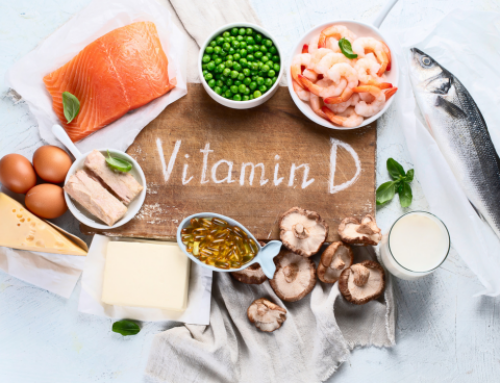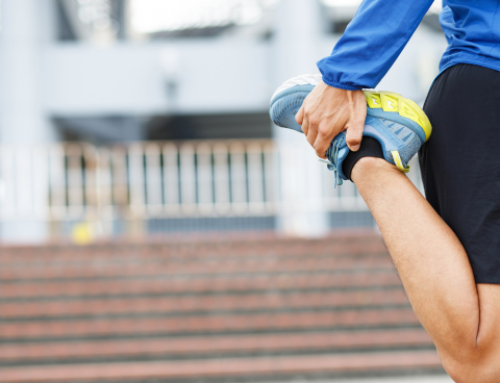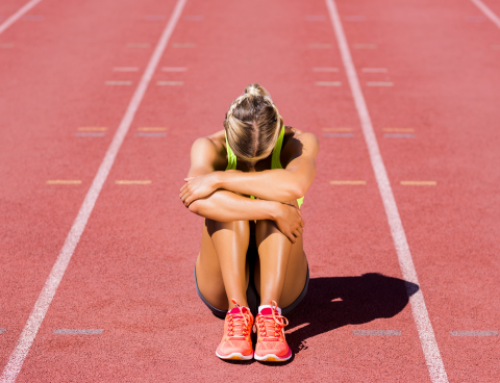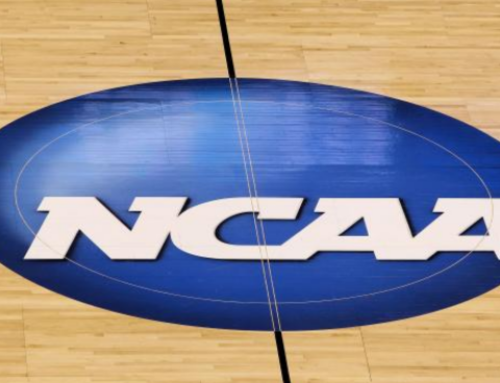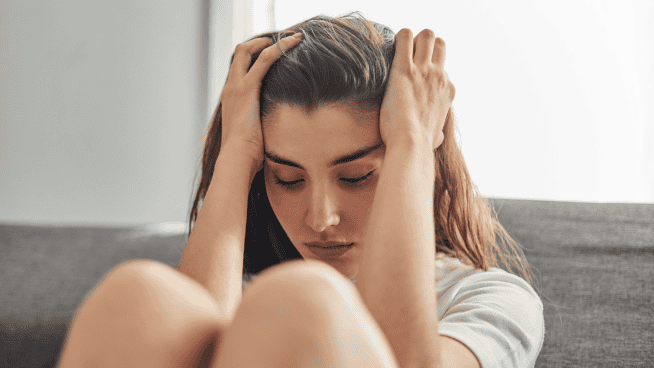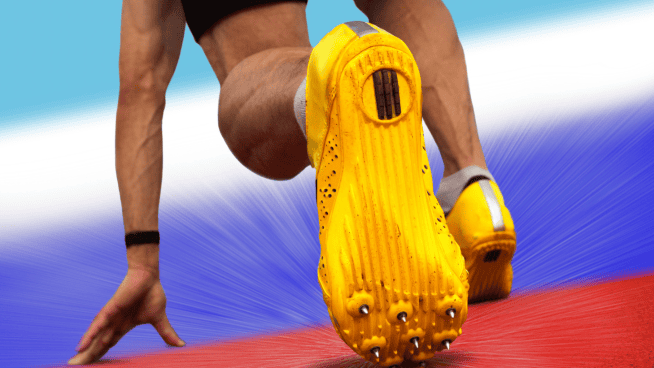Many adolescents and young adults battle body acne during middle and high school athletics or just the teenage years in general.
What is Acne, and Why Do I Get It?
Acne is a bacterial infection of the skin.
When dead skin cells and dirt build up on the skin, clog pores, and block skin oils from coming to the surface, a bacterium called Propionibacterium acnes thrives.
Sebaceous glands produce oil (sebum) that moisturizes the skin. The dirt and dead skin cells that accumulate on the skin cause whiteheads, blackheads, red blemishes called papules, and pus-filled pimples called pustules.
Blocked pores and excess sebum allow bacteria to grow rapidly and form acne. Your science teacher would call dirty, sweaty skin a perfect nutrient substrate for bacterial growth.
During puberty, the production of a hormone called androgen increases, and more sebum is produced. Usually sebum and dead skin cells exit via the hair follicles and out through the pores in the skin. If the pores are blocked, the bacteria will feast, and you will have acne.
Contrary to popular belief, sweat doesn’t cause acne. Sweat opens pores and helps in clearing out dirt and bacteria. Sweat releases an antibacterial protein called dermcidin that actually helps kill the bacteria that can cause acne. The combination of sweat (moisture) and heat makes your skin a bacterial incubator, a buffet for bacterial growth.
Not Just A Facial Issue
Acne is not just a facial issue. Bacteria build-up on athletic equipment like football and hockey pads. Acne resulting from the rubbing of athletic equipment or clothing on the skin causes pores and hair follicles to become clogged with dead skin cells, dirt, and sebum. Bacteria will grow on any dirty body surface like the back. The growth is called “bacne.”
Junk Food
Eating junk food does not cause acne. However, the Journal of Clinical and Aesthetic Dermatology reported that diets high in refined sugars could be linked to acne.
Stress
The relationship between stress and acne has been misunderstood by many. Stress can’t directly cause acne. However, studies have shown that if you already have acne, stress does make it worse.
Acne Remedies
Try and keep your face clean and stay hydrated. Keep your skin clean asap after any workout. Steam opens pores and aids in cleaning out dead cells, dirt, and oils.
If you can’t shower after a workout or a game you can wipe dirty, sweaty skin areas with pre-moistened antiseptic wipes to inhibit the growth of bacteria until you can take a shower.
In addition to cleaning your skin of perspiration and dirt, keeping equipment free of sweat and dirt is essential. You can also use pre-moistened antiseptic wipes to keep your equipment clean. Doing so will help avoid reinfection next time you don the equipment. Remember that the bacteria don’t need your dirty skin to proliferate—they just need moisture and warmth on your skin, clothing, or equipment.
Note that over-cleansing can dry out your skin resulting in redness and irritation.
Sun exposure can make acne worse because it dries your skin and causes increased oil production that leads to breakouts. Always wear sunscreen—even on cloudy days.
Medications
Argan oil from the kernels of argan trees has been reported to help unclog blocked pores and relieve dry skin.
Active ingredients to look for in over-the-counter remedies and cleaning products for acne are benzoyl peroxide, retinoids, and salicylic acid.
Benzoyl peroxide kills the bacteria that causes acne. An active percentage of 2.5 in the cream will kill the bacteria without irritating the skin.
Retinoids are vitamin A derivatives (vitamin A is retinol) that help break up blackheads and help prevent blocked pores.
Salicylic acid eases inflammation and helps clear blocked pores.
A dermatologist may prescribe an antibiotic or, in severe cases, an oral drug like isotretinoin.
Eighty-five percent of teenagers in the US are troubled by some degree of acne. In early adulthood, the hormones of puberty begin to decrease, and acne can disappear.
References
- https://www.neutrogena.com/the-bar/acne-facts-myths.html
- https://www.ncbi.nlm.nih.gov/pmc/articles/PMC4106357/
- https://www.aad.org/public/diseases/acne/diy/types-breakouts
RECOMMENDED FOR YOU
MOST POPULAR
Many adolescents and young adults battle body acne during middle and high school athletics or just the teenage years in general.
What is Acne, and Why Do I Get It?
Acne is a bacterial infection of the skin.
When dead skin cells and dirt build up on the skin, clog pores, and block skin oils from coming to the surface, a bacterium called Propionibacterium acnes thrives.
Sebaceous glands produce oil (sebum) that moisturizes the skin. The dirt and dead skin cells that accumulate on the skin cause whiteheads, blackheads, red blemishes called papules, and pus-filled pimples called pustules.
Blocked pores and excess sebum allow bacteria to grow rapidly and form acne. Your science teacher would call dirty, sweaty skin a perfect nutrient substrate for bacterial growth.
During puberty, the production of a hormone called androgen increases, and more sebum is produced. Usually sebum and dead skin cells exit via the hair follicles and out through the pores in the skin. If the pores are blocked, the bacteria will feast, and you will have acne.
Contrary to popular belief, sweat doesn’t cause acne. Sweat opens pores and helps in clearing out dirt and bacteria. Sweat releases an antibacterial protein called dermcidin that actually helps kill the bacteria that can cause acne. The combination of sweat (moisture) and heat makes your skin a bacterial incubator, a buffet for bacterial growth.
Not Just A Facial Issue
Acne is not just a facial issue. Bacteria build-up on athletic equipment like football and hockey pads. Acne resulting from the rubbing of athletic equipment or clothing on the skin causes pores and hair follicles to become clogged with dead skin cells, dirt, and sebum. Bacteria will grow on any dirty body surface like the back. The growth is called “bacne.”
Junk Food
Eating junk food does not cause acne. However, the Journal of Clinical and Aesthetic Dermatology reported that diets high in refined sugars could be linked to acne.
Stress
The relationship between stress and acne has been misunderstood by many. Stress can’t directly cause acne. However, studies have shown that if you already have acne, stress does make it worse.
Acne Remedies
Try and keep your face clean and stay hydrated. Keep your skin clean asap after any workout. Steam opens pores and aids in cleaning out dead cells, dirt, and oils.
If you can’t shower after a workout or a game you can wipe dirty, sweaty skin areas with pre-moistened antiseptic wipes to inhibit the growth of bacteria until you can take a shower.
In addition to cleaning your skin of perspiration and dirt, keeping equipment free of sweat and dirt is essential. You can also use pre-moistened antiseptic wipes to keep your equipment clean. Doing so will help avoid reinfection next time you don the equipment. Remember that the bacteria don’t need your dirty skin to proliferate—they just need moisture and warmth on your skin, clothing, or equipment.
Note that over-cleansing can dry out your skin resulting in redness and irritation.
Sun exposure can make acne worse because it dries your skin and causes increased oil production that leads to breakouts. Always wear sunscreen—even on cloudy days.
Medications
Argan oil from the kernels of argan trees has been reported to help unclog blocked pores and relieve dry skin.
Active ingredients to look for in over-the-counter remedies and cleaning products for acne are benzoyl peroxide, retinoids, and salicylic acid.
Benzoyl peroxide kills the bacteria that causes acne. An active percentage of 2.5 in the cream will kill the bacteria without irritating the skin.
Retinoids are vitamin A derivatives (vitamin A is retinol) that help break up blackheads and help prevent blocked pores.
Salicylic acid eases inflammation and helps clear blocked pores.
A dermatologist may prescribe an antibiotic or, in severe cases, an oral drug like isotretinoin.
Eighty-five percent of teenagers in the US are troubled by some degree of acne. In early adulthood, the hormones of puberty begin to decrease, and acne can disappear.
References
- https://www.neutrogena.com/the-bar/acne-facts-myths.html
- https://www.ncbi.nlm.nih.gov/pmc/articles/PMC4106357/
- https://www.aad.org/public/diseases/acne/diy/types-breakouts

